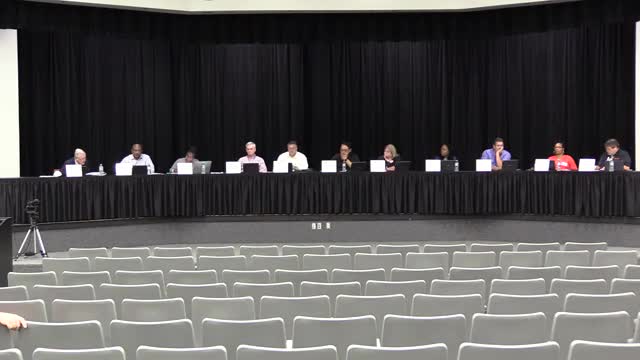Charter school ethics ruling sparks debate over unique system
August 20, 2024 | Lake Wales Charter Schools, School Districts, Florida
This article was created by AI summarizing key points discussed. AI makes mistakes, so for full details and context, please refer to the video of the full meeting. Please report any errors so we can fix them. Report an error »

In a recent government meeting, discussions centered around the unique legal and operational status of charter schools in Florida, particularly focusing on the case of Laurie Cunningham and the Lakewood Charter School. The meeting highlighted the absence of any conflict of interest regarding Cunningham's situation, with officials noting that the ethics commission lacks a comprehensive understanding of charter schools.
The attorney general's office is reportedly reassessing its stance on potential actions against Cunningham, suggesting a shift in their approach. The meeting underscored the complexities of charter school governance, with Lakewood Charter School being recognized as a distinct entity among Florida's 23 conversion charter schools. The school has successfully navigated the legal landscape to become a local education agency (LEA), allowing it to receive federal funds directly—a status not shared by most schools in the state.
Financially, the transition to LEA status has proven beneficial, with Lakewood receiving an additional $960,000 in federal funds compared to previous years. This financial boost is attributed to various factors, indicating the significant impact of legal designations on funding.
The meeting also served as a farewell to Robin, the general counsel for Lakewood Charter School, who is retiring after years of service. Board members expressed gratitude for his contributions, acknowledging the challenges faced during the school's growth and the importance of his legal guidance in navigating the complexities of education law.
As the charter school landscape continues to evolve, the commitment to supporting legal and operational frameworks remains a priority for stakeholders involved in Florida's education system.
The attorney general's office is reportedly reassessing its stance on potential actions against Cunningham, suggesting a shift in their approach. The meeting underscored the complexities of charter school governance, with Lakewood Charter School being recognized as a distinct entity among Florida's 23 conversion charter schools. The school has successfully navigated the legal landscape to become a local education agency (LEA), allowing it to receive federal funds directly—a status not shared by most schools in the state.
Financially, the transition to LEA status has proven beneficial, with Lakewood receiving an additional $960,000 in federal funds compared to previous years. This financial boost is attributed to various factors, indicating the significant impact of legal designations on funding.
The meeting also served as a farewell to Robin, the general counsel for Lakewood Charter School, who is retiring after years of service. Board members expressed gratitude for his contributions, acknowledging the challenges faced during the school's growth and the importance of his legal guidance in navigating the complexities of education law.
As the charter school landscape continues to evolve, the commitment to supporting legal and operational frameworks remains a priority for stakeholders involved in Florida's education system.
Don't Miss a Word: See the Full Meeting!
Go beyond summaries. Unlock every video, transcript, and key insight with a Founder Membership.
✓
Get instant access to full meeting videos
✓
Search and clip any phrase from complete transcripts
✓
Receive AI-powered summaries & custom alerts
✓
Enjoy lifetime, unrestricted access to government data
30-day money-back guarantee
